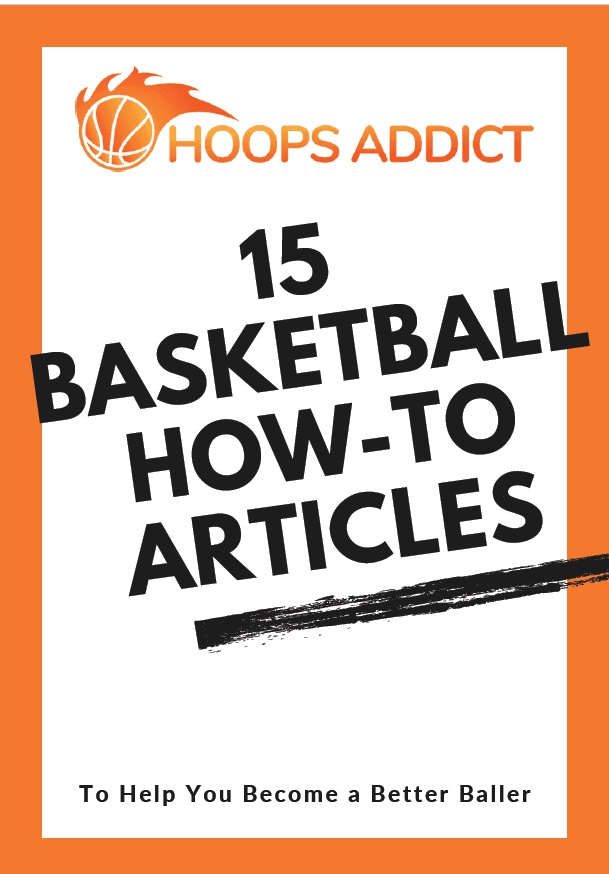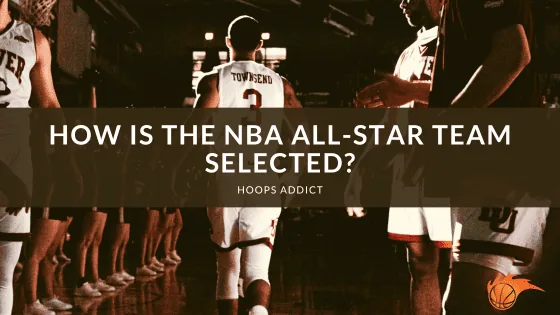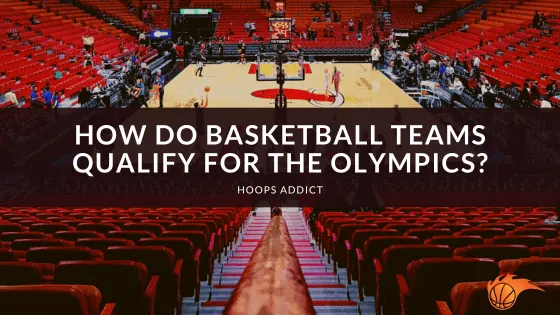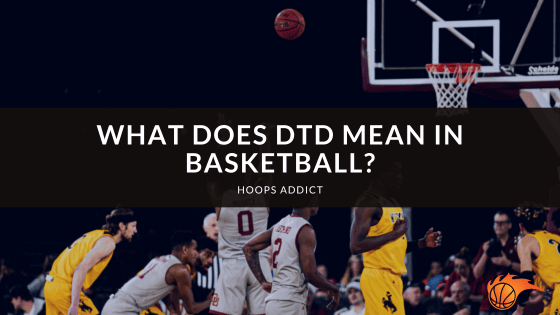Basketball is a game of emotion, physicality, and communication. More often than not, this involves physical expressions of excitement, encouragement, and celebration. Watch a basketball game, and you can readily see that players show these in many ways, sometimes in bizarre methods. That includes tapping a teammate’s head or their own. Why do basketball players tap their heads?
 What Does it Mean When Players Tap Their Head?
What Does it Mean When Players Tap Their Head?
Head patting in basketball is a pretty common way to celebrate or communicate. When somebody makes a good play, such as a momentum-shifting one, one player can congratulate a teammate by tapping the head from behind. That could quickly get you in a fight if you do that in the streets, but in basketball, it’s a love language.
There is also such a thing as a head tap celebration. For example, when a player forcefully dunks on someone, they may vigorously tap the top of their head in celebration, as if saying, “I’m dunking on your head!”
Another famous head tap celebration Carmelo Anthony popularized is “Three in the Dome.” After every made three-point shot, Anthony taps three fingers into his temple.
Darius Miles and Quentin Richardson did a similar head tap celebration when both played for the Los Angeles Clippers in the early 2000s. Miles and Richardson explained that the celebration meant “knucklehead” as he tapped his head with his knuckles after dunks. Interestingly, D-Miles and Q-Rich named their podcast “Knuckleheads.”
Other than that, NBA players may also pat their own heads. What does it mean when a basketball player taps his head? He may signal out a play, such as a pick and roll. When an offensive player, most notably the ballhandler, taps the top of his head, he is probably calling a screen so that he can operate.
Lastly, a head tap may also be a show of sportsmanship in basketball if a player from another team does that to an opponent. This could be an acknowledgment after a good play or a non-hostile act after the game is already decided.
 Why Do Basketball Players Tap Their Heads: 5 Reasons
Why Do Basketball Players Tap Their Heads: 5 Reasons
As pointed out, basketball players tap their heads for many reasons, and the tapping motion can take on different meanings depending on the circumstances. Here’s a rundown of the five most plausible reasons why basketball players tap their heads:
1. Celebration After a Successful Play
Basketball players do the head tap celebration after a huge momentum-swinging play, such as a dunk. It’s as if they’re saying “Watch your head!” or “I’m dunking on your head!”
https://www.youtube.com/shorts/Yit1qb-mVVc
2. Focus or Reminder
A basketball player may tap his head to remind himself or a teammate to focus on the task. This could happen after a miscommunication or a botched play.
3. Communicating with teammates or coaches
Players may use special signals or gestures to correspond with their coaches during a game. Tapping the head could indicate the need for a timeout, passing on information about the game condition, or requesting instruction. It could also signal a specific play, such as asking for a screen to initiate a pick-and-roll.
4. Acknowledging Teammates
A tap on the back of the head of a teammate is a sign that you’re acknowledging his play or impact. It’s basketball’s way of saying, “Job well done!”
5. Show of Sportsmanship
Sometimes, basketball players tap the head of their opponents as a sign of sportsmanship. This is done especially after the games and players congregate at the halfcourt. It’s common to see friends on opposing teams hugging and tapping each other’s heads to show love.
 Other Non-Verbal Signals / Gestures in Basketball
Other Non-Verbal Signals / Gestures in Basketball
Non-verbal signals and other gestures are necessary for basketball to communicate and show emotion or intensity. These could be done between players and coaches or just among the players.
Here are some common non-verbal signals and gestures in basketball:
- The Pointer
Pointing to one’s teammate after a made basket is a non-verbal way to say “thank you.” Acknowledging teammates like this strengthens teamwork and chemistry while fostering a spirit of togetherness.
In this sequence, notice how Al Horford pointed at Marcus Smart as if thanking him for that nice no-look dime.
- Chest-Thumping
Like a gorilla in the wild, chest-thumping is a way of marking your territory and displaying dominance. Big men often do it after a dunk, such as this first dunk in Kevin Garnett’s top 10.
- Finger Wag
The finger wag is one of the most common gestures in basketball. It was popularized by Dikembe Mutombo in the 1990s after every blocked shot as if saying, “No, not when I’m around!” However, Mutombo got a dose of his own medicine when he failed to reject a Michael Jordan dunk. MJ then proceeds to do the finger wag on Mutombo’s face.
- The Look
Players communicate with their eyes or their heads all the time. For instance, if you want your teammate to go right, you point your eyes or head to the right, and so on. This way of communicating is not foolproof because there’s a chance the other party does not get the code. However, if you have built enough chemistry with your teammates, this is already second nature, as Kobe Bryant and Pau Gasol showed in the 2009 NBA Finals.
- Swirling of the Hand
This is the coach’s way of telling his team to pick up the pace. Maybe he thinks they have a quickness advantage, or the point guard takes too long to get into their sets. Either way, a basketball coach often does the hand-swirling signal to communicate that he wants more speed and quickness injected into their possessions.
For more non-verbal communication by coaches, this video covers all the basics.
Wrapping Things Up: Why Do Basketball Players Tap Their Heads?
Basketball is a fast-paced, action-packed game that evokes a lot of emotions, ranging from anger to celebration. It is also a game of communication where one has to convey encouragement, appreciation, or strategy to other team members. One example is head patting in basketball.
Why do basketball players tap their heads? It could mean many things. These basketball players may just be in a celebratory mood after a good play, reminding themselves to focus on the game, acknowledging their teammates, or showing sportsmanship to opponents. Whatever the case, head patting in basketball is a common non-verbal language that generally means more good than harm.
We hope you enjoyed this post! If you did, be sure to check out our other basketball FAQ articles here.
> Why Do Basketball Players Wear Long Socks?
> Why Do Basketball Players Dribble Between Their Legs?
> Why Do Basketball Players Get Hurt So Easily?
> Why Do Basketball Players Wear Rubber Bands on Their Knees?
> Why Do Basketball Players Have Huge Shoulders?
> Why Do Basketball Players Only Wear One Leg Sleeve?
Want to get better at basketball?
Join our newsletter & get our comprehensive
101-page basketball guide.
Become a better baller today 👇


 What Does it Mean When Players Tap Their Head?
What Does it Mean When Players Tap Their Head? Why Do Basketball Players Tap Their Heads: 5 Reasons
Why Do Basketball Players Tap Their Heads: 5 Reasons Other Non-Verbal Signals / Gestures in Basketball
Other Non-Verbal Signals / Gestures in Basketball

